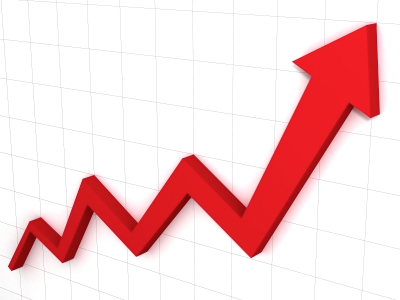 |
Craig White's Literature Courses Decline or Progress? (competing historical or cultural narratives) |
 |
Decline & progress are attitudes or mind-sets about the story history is telling as humans move from past to present to future.
Alternative formula: "hope or fear?" (reverses order of decline or progress)
Purpose: Decline & progress describe two different tones or outlooks on the future, and thereby the symbolic values associated with one worldview or another.
These two options may correspond to the two leading formulas or models of time:
Decline = Creation / Apocalypse model of time
The Creation (of the world or nation) had things right, but people lost their connections to that earlier truth, leading to imminent apocalypse or end-times, where the wrong will be punished.
Progress = Evolutionary model of time (though evolution doesn't necessarily lead to improvement)
How things started is murky at best, and never perfect to begin with; things change, with inevitable cost-benefit trade-offs and potential for learning and not repeating previous mistakes.
But decline / progress and hope / fear can also appear in the two major competing traditions of millennialism in Western and American theology:
![]() "pre-millennialism": Christ returns soon, judges the living and
dead, establishes a thousand-year reign of peace and justice followed by a final
battle with Satan's armies. (Pre-millennialism usually associated with
conservative evangelical and fundamentalist Christianity)
"pre-millennialism": Christ returns soon, judges the living and
dead, establishes a thousand-year reign of peace and justice followed by a final
battle with Satan's armies. (Pre-millennialism usually associated with
conservative evangelical and fundamentalist Christianity)
![]() "post-millennialism": Christ returns only after the
church or humanity have established the thousand-year reign of peace and
justice. (Post-millennialism usually associated with liberal or mainline
Christianity)
"post-millennialism": Christ returns only after the
church or humanity have established the thousand-year reign of peace and
justice. (Post-millennialism usually associated with liberal or mainline
Christianity)
The cultural narrative of "decline" (or fear) often seems more prevalent or persuasive than that of "progress" or "improvement," if only because older people tend to control cultural narratives, and as people age they frequently experience losses not only of loved ones but of prestige due to declining or obsolete skills or appearance.
Also human memory, unless traumatized, is selectively positive about what it remembers of the past, inclined to think of "the good old days," of frontier life as Little House on the Prairie instead of hunger and fear.
The narrative of decline, which easily corresponds to the Creation / Apocalypse model of time or history, is the attitude that . . .
1. Once things were perfect or harmonious (the golden age, frequently relocated) but . . .
2. A mistake, sin, or wrong turn or choice has misled people into bad ways that cannot continue but must instead lead to . . .
3. End-times for the present deteriorating state of affairs: judgment day, the day of reckoning, apocalypse . . . (but even this may not be the end) . . .
4. End of the old order may lead to a rebirth "a new heaven and a new earth." (Progress? Or recovery / reconstruction of an earlier state?)
For Creation / Apocalypse, the heaven prophesied in Revelation restores the "Tree of Life" and union between human and divine lost in Genesis.
Related terms: pessimism, fatalism (Oxford English Dictionary: the doctrine that all things are determined by fate; submission to everything that happens as inevitable)
Identifying catch-phrases: "It's really getting bad out there." "When I was young my parents wouldn't have let me behave like that." "You can't trust anyone these days." "Things were different when I was growing up." "The system can't take much more until everything falls apart." "If we start this, we're putting ourselves on a slippery slope."
Another reason for predisposition to decline narratives: For the first years of life all humans need to be cared for—fed, sheltered, more or less loved—in order to survive to take their turn at feeding and sheltering themselves and others. Thus the "decline narrative" and the Genesis story of humans in and out of the Garden of Eden may correspond to or be reinforced by every human's experience of growing up.
 |
 |
The cultural narrative of "progress" (or hope) may be associated with evolution. If conditions (i.e. environment) are improved, people may act better. Instead of the past as a golden age, the past was an earlier stage of development we can learn from in order to avoid similar mistakes or to imitate what worked and evolve to a better future.
With evolutionary thinking, though, any assumptions of progress or decline may depend on the time scales involved. Progress or improvement may be witnessed short-term, but long-term or deep future? Since modern humans have existed for only 150,000 years and civilization for less than 10,000 years, human efforts to improve or even survive can seem pitifully feeble and hopeless when compared to geologic time of hundreds of millions of years (as with fossil fuels) or billions of years in cosmic time (or eternity). Or evolution may trap humanity and all nature in cycles rather than forward motion.
On the other hand, humans are now gaining the knowledge to control evolution (to some degree) through genetic engineering, bio-engineering, and geo-engineering.
In religious terms, faith in progress may appear "worldly" and "vain," trusting in humanity's ability to guide itself instead of submitting to divine will.
Evolution as both decline and progress may be seen in two corresponding but dialectical ideas of progress or progression:
1. Nature and species evolve from primitive to more complex or sophisticated forms; e.g.
![]() biology:
chimp-like primates to humans
biology:
chimp-like primates to humans
![]() culture /
technology of writing: quills & inkpots > ballpoint pens > word-processing
programs
culture /
technology of writing: quills & inkpots > ballpoint pens > word-processing
programs
2. Nature and its forms simultaneously disintegrate, lose energy, and break down in the process of entropy
entropy: In thermodynamics, the disorder of a system never decreases but seeks equilibrium
Entropy is the only quantity in the physical sciences that seems to imply a particular direction of progress, sometimes called an arrow of time. As time progresses, the second law of thermodynamics states that the entropy of an isolated system never decreases. Hence, from this perspective, entropy measurement is thought of as a kind of clock. . . . Since a finite universe is an isolated system, the Second Law of Thermodynamics states that its total entropy is constantly increasing. It has been speculated, since the 19th century, that the universe is fated to a heat death in which all the energy ends up as a homogeneous distribution of thermal energy, so that no more work can be extracted from any source.
(https://en.wikipedia.org/wiki/Entropy#Approaches_to_understanding_entropy)
In popular culture or rhetoric, "entropy" thus becomes a metaphor for the apparent disintegration or deterioration of a previously existing state of affairs—an episode of Buffy the Vampire Slayer was titled "Entropy."
In ecology, entropy may also mean a measure of biodiversity, which sounds like a good thing from a distance, but up close could mean a disintegration of dominant forms by smaller ones.
 |
 |